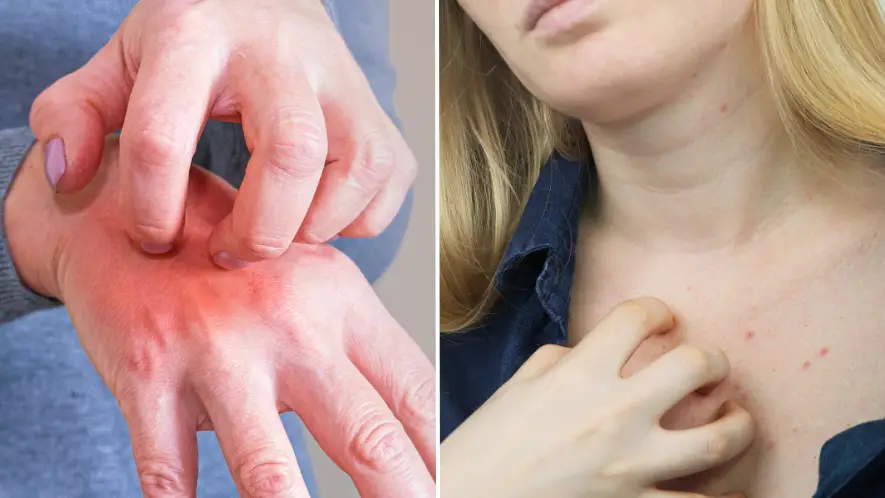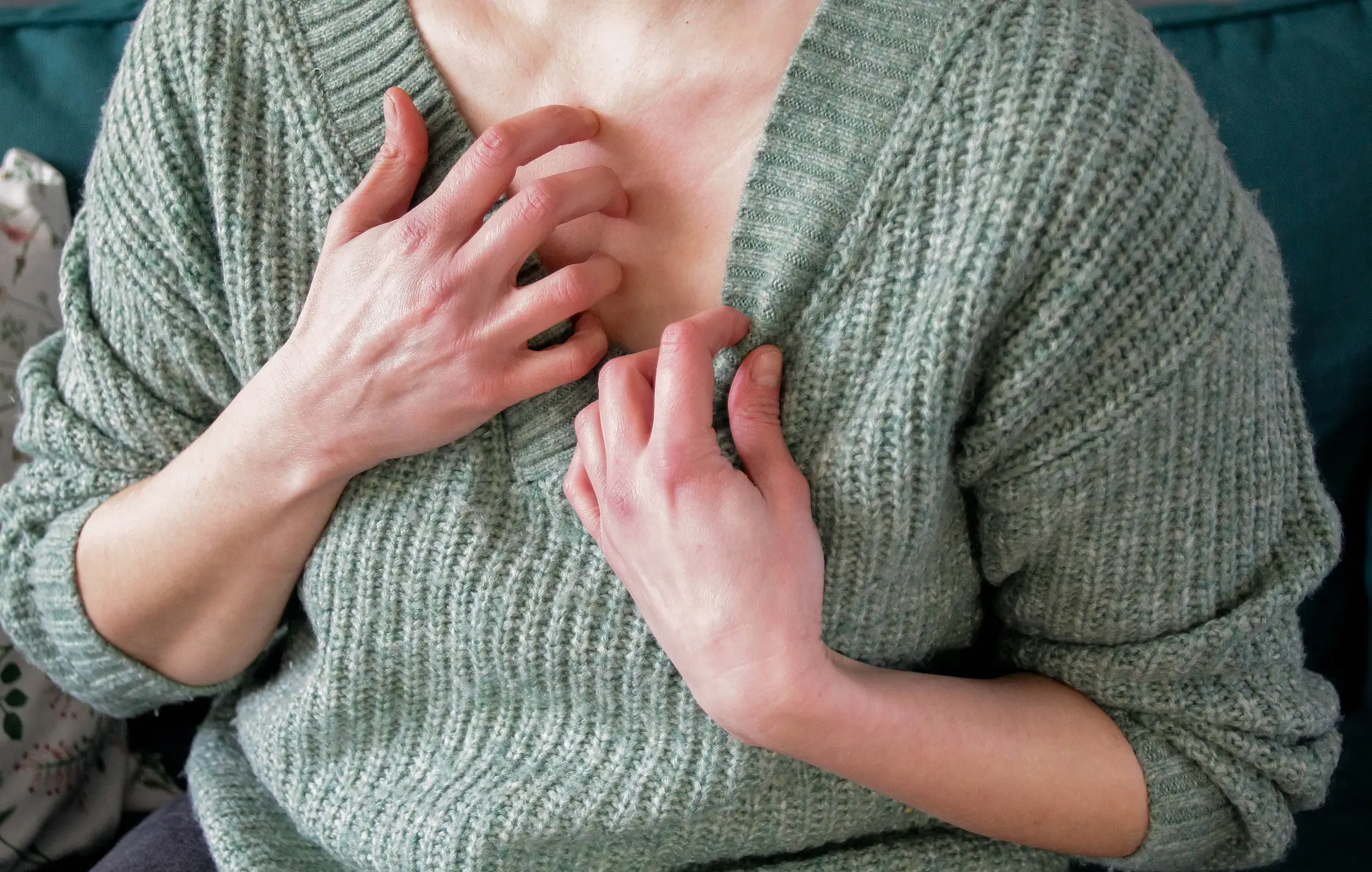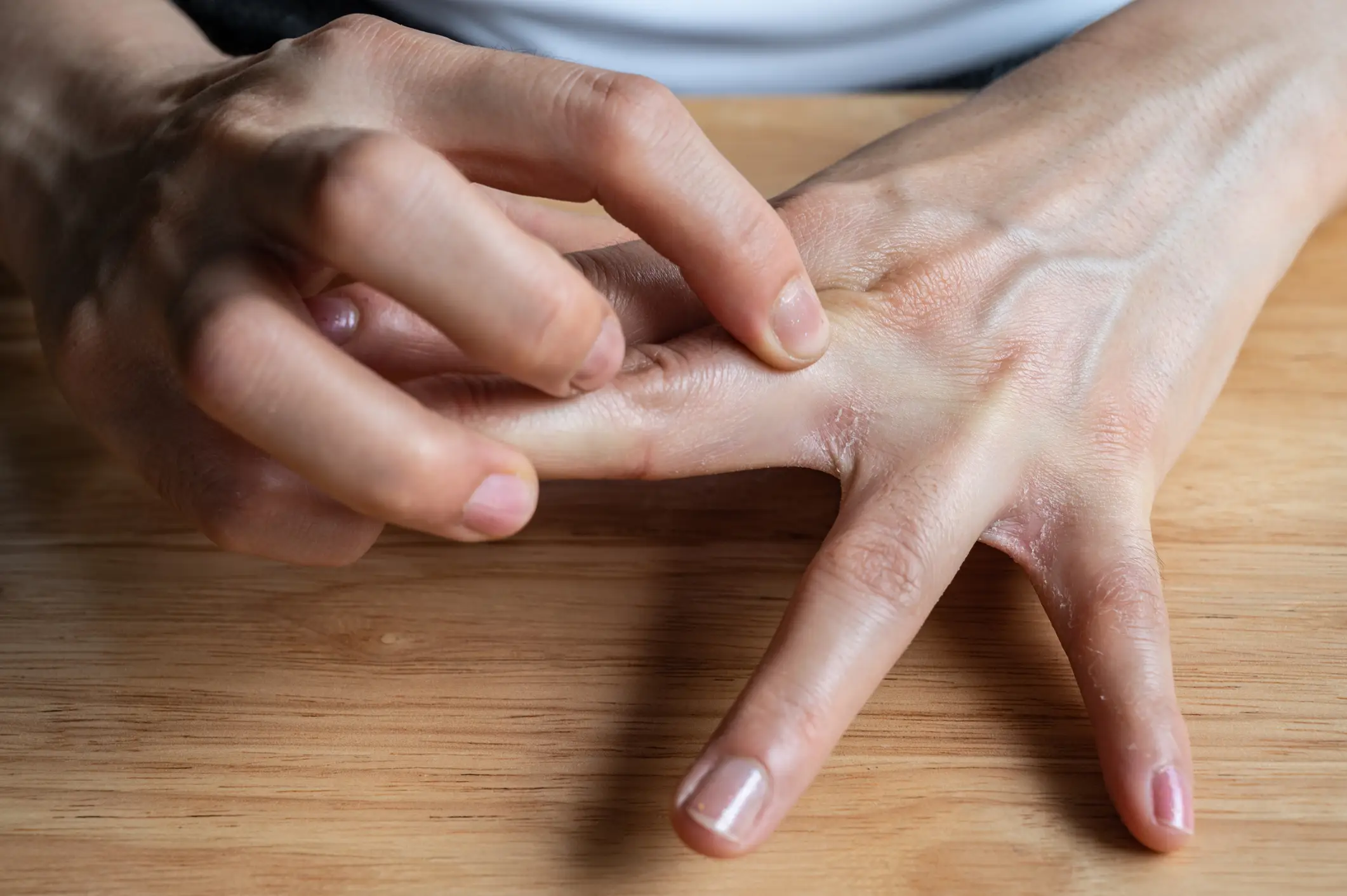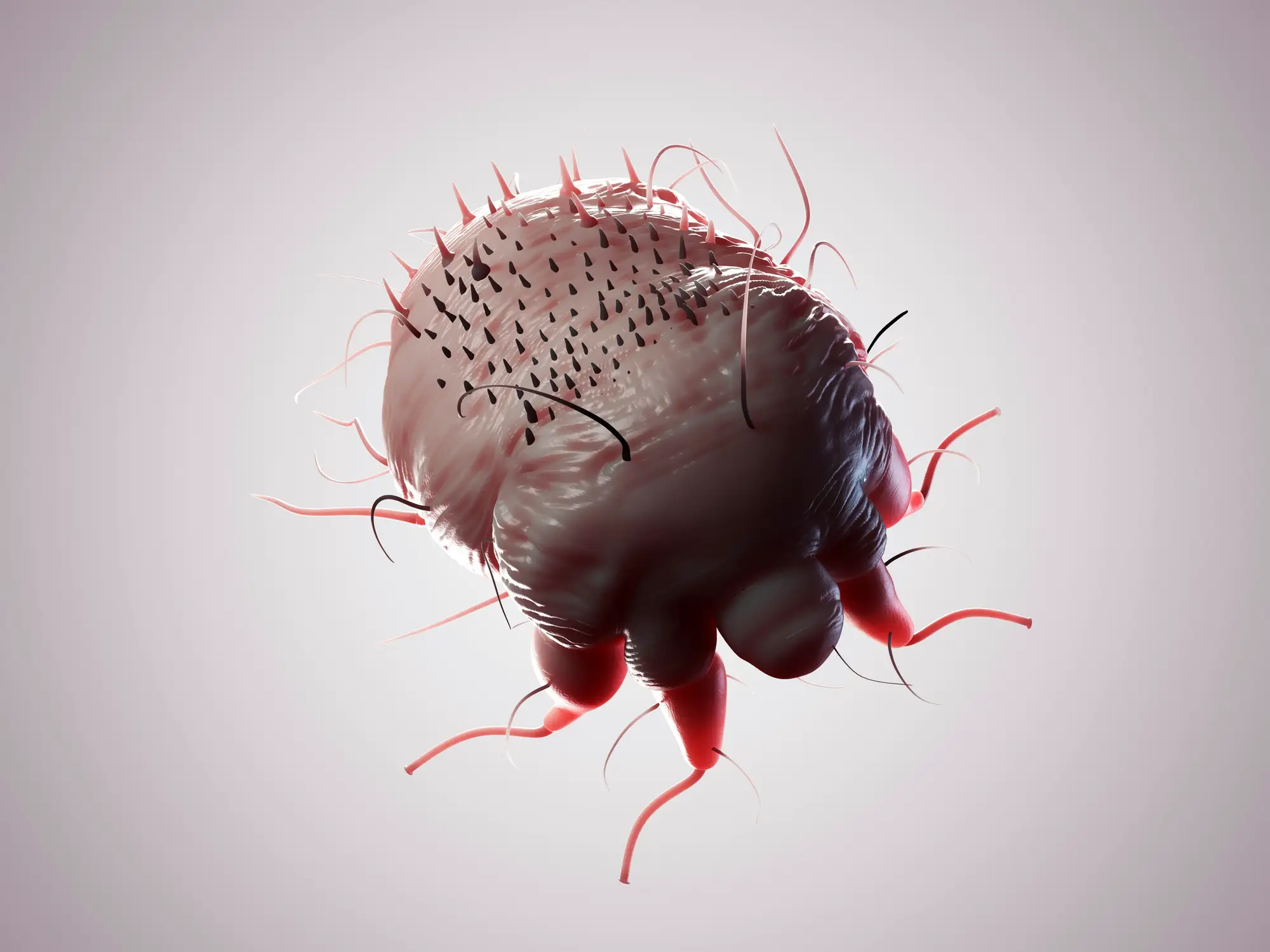
We're now nearly in November and we've got all the winter-time lurgies to look forward to as the weather gets colder, our jumpers get thicker, and our noses get runnier.
But it's not just a common cold or flu we need to be wary of at the moment as there's also a highly contagious skin disease which has seen a surge in cases across the UK.
So, to help you deal with it the best way, the NHS has issued some clear advice on the key symptoms to look out for, when exactly to speak to your GP and what you can personally do to reduce the spread.

A rise across the UK
The skin disease in question is scabies which is caused by tiny mites that burrow into the skin to lay their eggs. Scabies cases are on the rise across the UK, particularly in England.
Advert
Chair of the Royal College of GPs, Professor Kamila Hawthorne, said: “While not a serious condition, scabies can be very itchy and irritating, and can be easily contracted through close physical contact.
"If not properly treated, it can spread and increase a patient’s risk of complications such as secondary skin infections or make existing skin conditions worse.
“The rate of scabies presentations in general practice is above the five-year average and rising, with the north of England seeing a spike in scabies cases, but incidences are still infrequent.
"We recognise that patients may be apprehensive to seek treatment given the social stigma that surrounds the condition, but it is important that they don’t ignore their symptoms as this could lead to them getting worse and risks transmitting the condition to other people - particularly if they are living in close proximity to others such as on a university campus."

Key signs and symptoms of scabies to look out for
One of the major symptoms of scabies is some pretty intense itching - especially at nighttime - while another is noticeably raised rashes or spots.
The NHS warns that these spots may appear reddish in colour before turning into tiny spots and 'you should be able to feel them'.
Those with a weakened immune system can sometimes get a rare and very contagious type of scabies, called crusted scabies, with the main symptom being a crusted, flaky rash.
Areas most likely to be affected
While it can be anywhere on the body, apart from the head and neck, the rash is very common between the fingers, around the wrists, under the arms, and around the waist, groin and bottom.
Older people and young children may also develop a rash on their head, neck, palms and soles of their feet.
Similarly, crusted scabies often affects the elbows, knees, hands and feet.
When to speak to your GP
You need to speak to your GP as soon as you notice the symptoms so that a pharmacist can prescribe you a cream or lotion as treatment to get it cleared up ASAP.
The two most common treatments for scabies are permethrin cream and malathion lotion - both of which contain insecticides that kill the scabies mite.
To help reduce the itchiness, you may also be givencsteroid cream, menthol cream or gel or antihistamines.
You can return to school or work after the first treatment has been completed but, if you’re still experiencing itchiness two to four weeks after completing your treatment, you should contact your GP for a check-up.
As scabies is super infectious, it's important everyone in your home be treated at the same time as it can sometimes take up to eight weeks for a scabies rash to even appear.
Additionally, anyone you’ve had sexual contact with in the past eight weeks should also be treated.

Ways to reduce spread
Apart from getting your treatment sorted soon as, you can also take further measures to reduce the spread of the highly contagious disease.
The NHS advises those with scabies put a big wash on of all bedding and clothing at 60C or higher on the first day of treatment.
And for any clothing that can't be washed, be sure to whack it in a sealed bag for three days until the mites die.
Cleaning your floors as well as hoovering your carpets and furniture, including the armchairs and sofa, will also help to reduce the spread.
Additionally, be sure to not share bedding, clothing or towels with someone with scabies.
Also, it's recommended that anyone with scabies does not have sex or close physical contact until you have completed the full course of treatment.
Find out more about scabies on the official NHS website here.